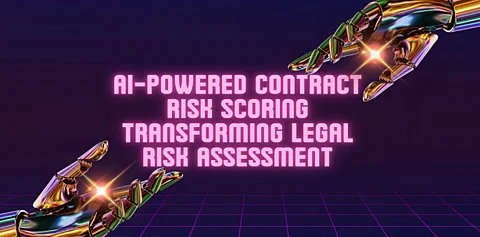

In today’s fast-paced legal landscape, leveraging advanced artificial intelligence is revolutionizing how organizations manage contract risks and compliance requirements. Niraj Ittan, an innovator in legal technology, introduces an AI-powered Contract Risk Scoring Engine designed to address inefficiencies in traditional methods and modernize risk assessment processes. This cutting-edge system bridges the gap between manual review limitations and automation, empowering organizations with smarter, faster, and highly accurate contract management solutions tailored for evolving legal complexities.
The legal industry is witnessing a revolutionary shift from manual contract analysis to automated, AI-driven solutions aimed at increasing productivity and accuracy. Traditional methods, often plagued by inefficiency, inconsistency, and human error, were unable to cope with the scale and complexity of modern contracts. Organizations can now process large portfolios of contracts with increased accuracy by 90% and a reduction in review times by up to 80% with the help of AI. These developments not only make operations more efficient but also redefine compliance standards, risk mitigation practices, and decision-making processes across different industries.
At the core of the Contract Risk Scoring Engine is a multi-layered architecture powered by cutting-edge machine learning and natural language processing (NLP). The system uses a Document Processing Pipeline to manage diverse formats, while the NLP engine ensures precise interpretation of legal language and clauses. A sophisticated Risk Analysis Module identifies high-risk contractual elements, and a secure data pipeline guarantees scalability and security. This cohesive, high-performing design ensures the efficient processing of complex legal documents, setting unparalleled benchmarks in the legal technology sector.
Machine learning models designed for the purpose of legal document analysis underpin this cutting-edge risk assessment system. The training pipeline employs the most advanced techniques in supervised learning, transfer learning, and fine-tuning specifically for legal text. The models are particularly accurate at picking out over 200 categories of risks, such as regulatory compliance, financial liabilities, and operational commitments, at rates higher than 95% for each contract type. Continuous learning mechanisms enhance adaptability, enabling the system to evolve with changes in legal language and regulatory requirements, ensuring long-term relevance and effectiveness.
An adaptive scoring methodology is utilized in the risk assessment framework for the assessment of contracts in multiple dimensions, ensuring complete risk management. This system produces specific and actionable scores on identified risks based on probability, context, and potential impact. Such a mechanism helps organizations rank their risks properly and create mitigation plans. Research has shown that AI-based risk assessment provides 30% more accuracy and 40% faster analysis than traditional methods, which is a complete revolution in the way businesses approach complex contractual obligations and compliance issues.
The implementation process for the system involves meticulous integration, supported by APIs, distributed processing capabilities, and scalable architecture for seamless compatibility with existing workflows. Rigorous quality assurance protocols, including systematic validation, real-time performance monitoring, and explainability testing, ensure consistent accuracy and reliability. By addressing AI-specific challenges such as transparency, security, and adaptability, the system achieves industry-leading standards, paving the way for sustained operational efficiency and robust compliance in dynamic environments.
The AI-powered Contract Risk Scoring Engine is a game-changer, allowing organizations to reduce operational costs, streamline workflows, and improve risk management. Businesses report significant cost savings, enhanced operational efficiency, and a 50% reduction in manual review efforts by automating labor-intensive processes. It strengthens competitive positioning and improves client satisfaction by handling high contract volumes with consistent accuracy. This technology allows organizations to better meet regulatory demands, driving long-term growth and innovation in contract management.
Future development roadmaps for the Contract Risk Scoring Engine are based on integration of advanced predictive analytics, dynamic automation, and better compliance tools. Since the legal technology market is projecting massive growth, coupled with an increasingly increasing number of AI integrations, the system will have no problems adapting to these new trends, which estimate 72.5% by 2030. Continuous improvements aim to tackle evolving regulatory complexities, expand machine learning capabilities, and ensure seamless performance, making the system indispensable for modern legal operations and risk assessment challenges.
In conclusion, Niraj Ittan highlights the potential of AI to transform contract management and compliance through innovative Contract Risk Scoring Engine. Advanced machine learning, NLP, adaptive risk assessment methodologies, and real-time analytics make the system the new benchmark in terms of operational efficiency, accuracy, and scalability. This engine shows the great power of technology in addressing complex challenges, driving sustainable growth, and paving the way for the future of legal technology, efficient compliance, and enhanced risk management as organizations increasingly adopt AI-driven solutions.
